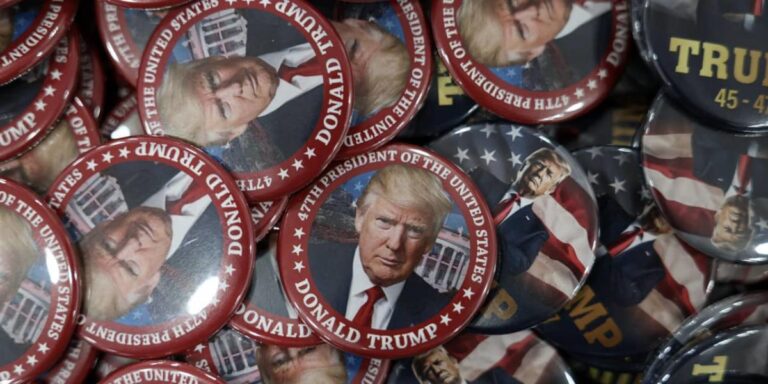Bitcoin hit a new all-time high above $109,000 on Monday, while the U.S. dollar weakened as investors weighed the impact of Donald Trump’s second term as president.
Stock futures also rose on the back of gains in Asian and European stock markets. As of 12:05 p.m. ET, shortly after Trump took office, contracts tied to major indexes were up about 0.5%. U.S. stock and bond markets were closed Monday to commemorate Martin Luther King Jr. Day.
Bitcoin soared, trading as high as an intraday record $109,225 before falling, according to the CoinDesk index. Shortly after President Trump took office, it fell below $105,000.
Trump has positioned himself as a champion of virtual currencies and has made clear his plans to establish a U.S. Bitcoin stockpile. Since his election, Bitcoin has soared more than 50%.
The president-elect and first lady Melania Trump have launched new cryptocurrencies in recent days, meme coins named $TRUMP and $MELANIA. The project quickly drew disapproval, with some critics saying the tokens posed a significant conflict of interest.
Ahead of Inauguration Day, the Wall Street Journal reported that President Trump had no plans to impose tariffs on his first day in office, a scenario many trading partners were concerned about.
The dollar widened its decline, with the WSJ dollar index falling 0.8% to its lowest point in nearly two weeks, while currencies of countries expected to be hit hard by the tariffs strengthened. As of midday, the British pound, euro, Mexican peso, Canadian dollar and offshore Chinese yuan were each up more than 0.8% against the dollar.
Investors were bracing for Trump to issue a slew of executive orders on border control, energy and government reform within hours of taking office.
“Once executive orders start to be issued and their impact is analyzed, that’s where the market will be affected,” said Susannah Streeter, head of money and markets at Hargreaves Lansdown. said.
As a result, asset prices are likely to remain volatile, Streeter said. “Some of your worst fears may not come true. On the other hand, sudden movements may occur.”
U.S. stocks rose sharply last week on strong bank earnings and inflation reports that suggested underlying price pressures were easing. But many investors are concerned that policies such as high tariffs promised by President Trump could reaccelerate inflation and have far-reaching implications for markets and Federal Reserve policy, raising concerns about potential disruption. We are prepared.
story continues

